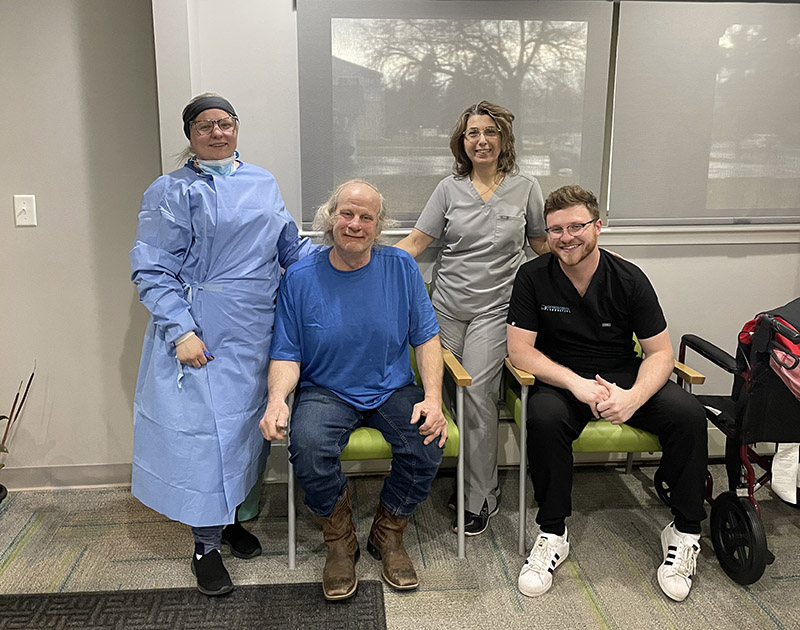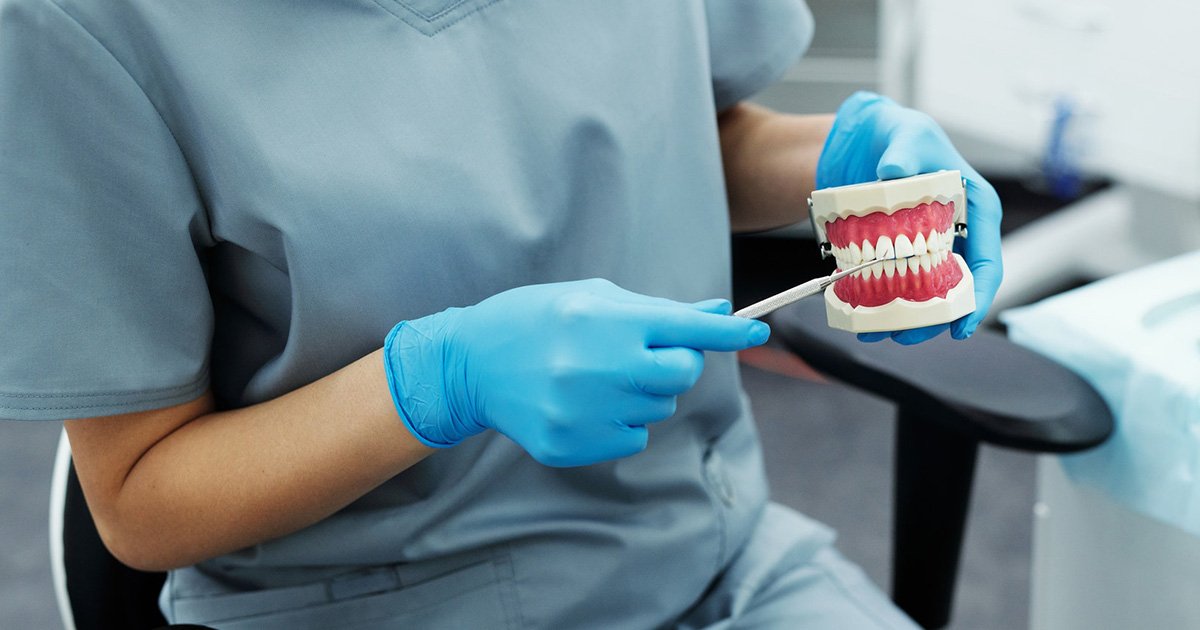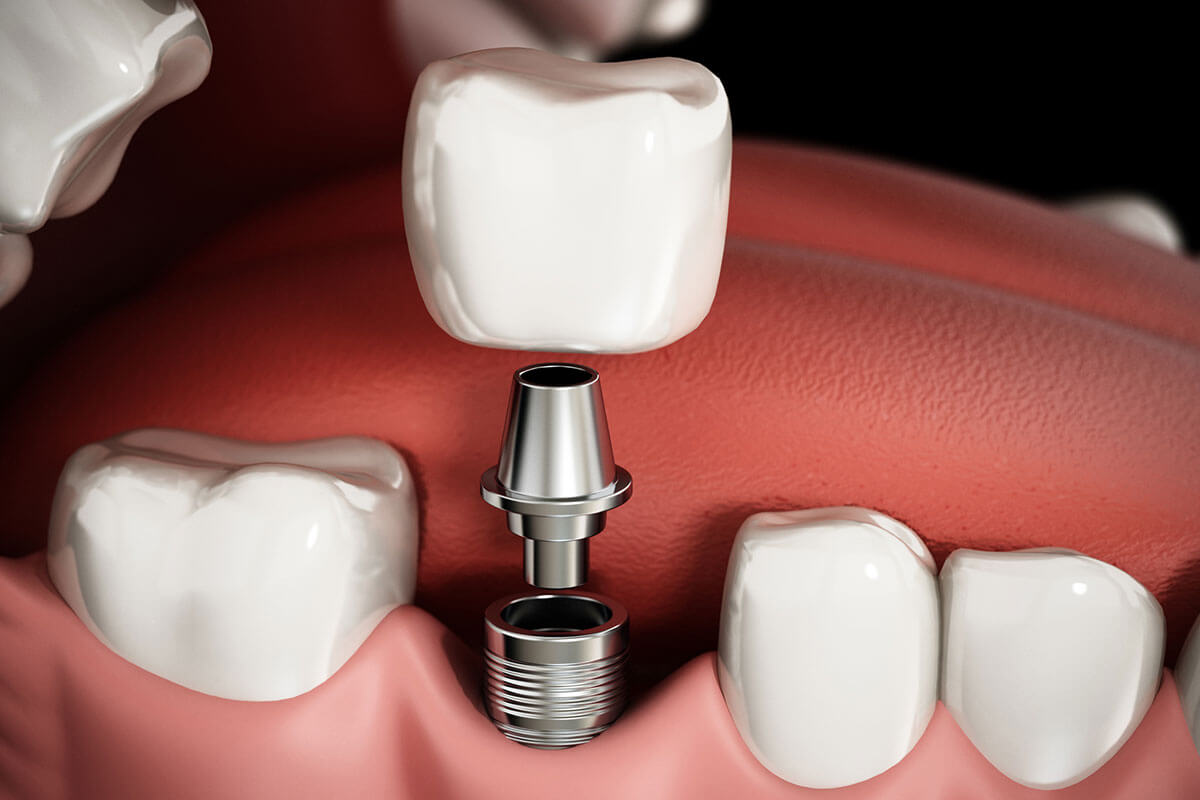Reasons Not To Get a Dental Implant
Should You Worry? Is Dental Implant Right For You?
Despite the lists we have provided, showing the factors that may make some individuals non-ideal candidates for dental implants, it’s important to emphasize that dental implants are still a great option for many people with missing teeth. In our previous article titled “Who is a Good Candidate for Dental Implants,” we explained the criteria that make individuals suitable candidates for dental implants. These include having sufficient bone density to support the implant, maintaining good oral health without severe gum disease, and not having certain medical conditions or medications that may interfere with the healing process.
For those who meet the criteria of an ideal candidate, dental implants offer numerous benefits. They provide a long-lasting and durable solution for tooth replacement, improve chewing function, enhance speech, and restore confidence by giving a natural-looking and feeling smile. Dental implants also help preserve the jawbone, preventing bone resorption and maintaining the facial structure. In our other article on “How to Prepare for Dental Implants,” we highlighted how to manage the risks and ensure a successful implantation process. Proper planning, thorough dental examinations, and discussions with a qualified dental professional are crucial steps in determining the suitability of dental implants for an individual. Addressing any existing oral health issues, such as gum disease or tooth decay, before the implant procedure is essential for achieving the best possible outcome.
While there are potential risks and factors that may deter some individuals from getting dental implants, it is essential to recognize that advancements in dental technology and techniques have significantly improved the success rates of dental implant procedures. With proper care and maintenance, dental implants can provide a functional and aesthetic solution for missing teeth that can last for many years. Ultimately, the decision of whether dental implants are right for you depends on various factors unique to your oral health, lifestyle, and preferences. If you are considering dental implants, it is crucial to consult with a qualified dental professional who can assess your individual case, discuss the potential risks and benefits, and help you make an informed decision.
In conclusion, dental implants remain a fantastic option for many individuals seeking a permanent and effective solution for missing teeth. While not everyone may be an ideal candidate, advances in dentistry have expanded the potential pool of candidates who can benefit from dental implants. By understanding the risks and benefits, seeking professional advice, and maintaining good oral health, you can determine if dental implants are the right choice for you and achieve a beautiful and functional smile.
Dental implants are artificial tooth roots that are surgically placed into the jawbone to support a replacement tooth or bridge. They are a popular and effective solution for individuals with missing teeth, as they provide a stable and durable foundation for prosthetic teeth.
Dental implants have gained popularity over the years due to their numerous benefits. They offer improved aesthetics, better speech, enhanced chewing function, and increased confidence. Dental implants also help prevent bone loss and maintain the natural shape of the face. However, despite their advantages, there are several reasons why some individuals might choose not to get a dental implant.


Considerations Against Getting a Dental Implant
Financial Considerations
One significant factor that might deter individuals from getting a dental implant is the high initial cost. Dental implant procedures can be expensive, as they involve the surgical placement of the implant and the fabrication of a custom-made crown or bridge to fit the implant. The overall cost can vary depending on the complexity of the case and the location of the dental clinic.
Moreover, dental insurance coverage for implants is often limited or non-existent. This lack of insurance coverage can be a major barrier for many patients, making the overall cost of the procedure even more burdensome. Additionally, after the initial placement, there may be potential additional expenses for maintenance and repairs over time. While dental implants are designed to be long-lasting, there is still a possibility of complications or issues that may require further dental work and associated costs.
Surgical Risks and Complications
Undergoing a dental implant procedure involves surgical intervention, which carries inherent risks and potential complications. Infection is one of the most common concerns after surgery. Despite proper hygiene and care, there is still a risk of infection at the implant site, which could lead to implant failure and the need for removal.
Are dental implants painful? Post-surgery discomfort is another factor that may deter individuals from getting dental implants. While pain and discomfort are typically manageable with medication and proper aftercare, some individuals may be wary of the recovery process. Furthermore, during the implant placement, there is a possibility of nerve damage in the surrounding areas. This can result in temporary or, in rare cases, permanent numbness or altered sensation in the mouth and face.
Moreover, some individuals may experience implant failure over time, which can necessitate revision surgery. Implant failure can occur due to various reasons, including poor osseointegration (the process of the implant fusing with the jawbone) or complications during the healing process.
Bone Loss and Resorption
Natural bone deterioration is another concern when it comes to dental implants. Without the stimulation provided by natural teeth, the jawbone may start to resorb or shrink over time. This can lead to changes in facial appearance and make future implant procedures more challenging.
Another potential issue is peri-implantitis, a condition similar to gum disease that affects the tissues around the implant. If left untreated, peri-implantitis can lead to bone loss and eventually cause implant failure. Furthermore, the placement of dental implants can impact adjacent teeth. In some cases, adjacent teeth may require preparation or modification to accommodate the implant, which some individuals may see as a drawback.
Lengthy Treatment Process
Getting a dental implant is not a quick procedure and requires a considerable amount of time for the entire treatment process. After the initial implant placement, the healing and integration of the implant with the jawbone can take several months. During this time, patients may need to follow specific dietary restrictions and be cautious about certain activities to ensure proper healing.
Moreover, multiple appointments with the dentist or oral surgeon are typically required throughout the treatment process. These appointments include evaluations, implant placement, crown or bridge placement, and follow-up visits. For individuals with busy schedules or limited access to dental care, this lengthy process may be challenging to manage. The impact on daily life during the treatment process is another consideration. Some individuals may find it inconvenient to adapt their routines and lifestyle to accommodate the necessary precautions and post-surgery care.
Long-Term Durability and Lifespan
One of the significant factors to consider when deciding whether to get a dental implant is its long-term durability and lifespan. Dental implants are designed to be a long-lasting solution for tooth replacement, and with proper care and maintenance, they can potentially last for many years, if not a lifetime.
While dental implants are designed to be long-lasting, they are not entirely immune to wear and tear. Over time, the crown or bridge attached to the implant may experience some wear, especially if the individual habitually grinds their teeth or has an uneven bite. In such cases, the crown or bridge may need to be replaced to maintain optimal function and aesthetics. Additionally, certain lifestyle factors, such as smoking or poor oral hygiene, can increase the risk of complications and implant failure. In some cases, this may lead to the need for implant revision or replacement.
Effects of Aging on Implants and Adjacent Teeth
As individuals age, the natural processes of aging can impact dental implants and the adjacent teeth. While dental implants are not subject to decay like natural teeth, they are still susceptible to the effects of gum disease (peri-implantitis) and bone loss. Gum disease can develop around dental implants if proper oral hygiene is not maintained. This condition can lead to inflammation and infection of the tissues surrounding the implant, potentially causing bone loss and compromising the stability of the implant.
Furthermore, as people age, the jawbone may naturally undergo changes, including bone resorption. This natural bone deterioration can affect the stability of dental implants over time, making them less secure. However, regular dental check-ups and professional cleanings, as well as maintaining good oral hygiene practices, can help prevent or minimize these issues. Moreover, the condition of the adjacent teeth can also influence the lifespan and durability of dental implants. If neighboring teeth experience decay or other dental issues, it can indirectly affect the health of the implant and the overall oral health. Regular dental examinations and early intervention for any dental problems are essential for maintaining the longevity of both implants and natural teeth.
Non-Ideal Candidates for Dental Implants
While dental implants are a popular and effective solution for many individuals with missing teeth, not everyone is an ideal candidate for the procedure. Several factors can make a person unsuitable for dental implants, including:
Insufficient Bone Density
Dental implants require a sufficient amount of healthy jawbone to support the implant. If a person has experienced significant bone loss in the jaw due to factors like tooth extraction, gum disease, or wearing dentures for an extended period, they may not have enough bone to support the implant. In such cases, bone grafting procedures may be considered to augment bone density and make dental implants feasible.
Gum Disease or Oral Health Issues
Patients with severe gum disease (periodontitis) may not be suitable candidates for dental implants. Gum disease can lead to bone loss and compromise the stability of dental implants. Before considering dental implants, it is essential to address and treat any existing gum disease and achieve a healthy oral environment.

Certain Medical Conditions or Medications
Some medical conditions, such as uncontrolled diabetes or autoimmune disorders, can affect the healing process after implant surgery. Additionally, certain medications, like bisphosphonates used to treat osteoporosis, can interfere with the bone’s ability to heal and integrate with the implant. Patients with these conditions may need to explore alternative tooth replacement options.

Alternative Tooth Replacement Options
For individuals who are not suitable candidates for dental implants or prefer alternative options, there are several other tooth replacement choices available. These alternatives include:
Dental Bridges
Dental bridges are a fixed tooth replacement option that uses adjacent healthy teeth to support a prosthetic tooth or teeth. The adjacent teeth, called abutment teeth, are prepared and capped with dental crowns, while the prosthetic tooth, known as a pontic, fills the gap left by the missing tooth. Dental bridges are a viable option for patients with healthy adjacent teeth and sufficient bone support.
Dentures (Full and Partial)
Dentures are removable prosthetic devices used to replace multiple missing teeth or an entire arch of teeth. Full dentures replace all the teeth in the upper or lower jaw, while partial dentures replace multiple missing teeth while clasping onto the remaining natural teeth. Dentures can provide a cost-effective solution for tooth replacement but may require regular adjustments and maintenance.
Resin-Bonded Bridges
Also known as Maryland bridges, resin-bonded bridges are conservative tooth replacement options suitable for replacing a single missing tooth. These bridges consist of a prosthetic tooth bonded to the back of adjacent natural teeth using resin or metal wings. As they do not require extensive tooth preparation, resin-bonded bridges are less invasive than traditional dental bridges.
Removable Implant-Supported Overdentures
For patients with inadequate bone density but still seeking the benefits of dental implants, implant-supported overdentures can be a suitable alternative. These dentures are supported by dental implants but are removable for easy cleaning and maintenance. Implant-supported overdentures provide improved stability and functionality compared to traditional removable dentures.
Frequently Asked Questions
Who should not get a dental implant?
Not everyone is a suitable candidate for dental implants. Those who have inadequate bone density or volume in their jaw, uncontrolled chronic conditions like diabetes, or compromised immune systems may not be good candidates for the procedure. Additionally, heavy smokers or individuals with certain oral health issues may also be advised against getting dental implants.
What are the disadvantages of dental implants?
Some disadvantages of dental implants include the cost, which can be higher than other tooth replacement options, such as dentures or bridges. The implant process can also require multiple appointments and may take several months to complete. In some cases, there may be a risk of complications like infection or nerve damage, though these are relatively rare.
What problems can dental implants cause?
Dental implants can occasionally lead to certain problems, including infection at the implant site, nerve or tissue damage, or failure of the implant to integrate with the jawbone properly. Additionally, some individuals may experience temporary discomfort or pain after the procedure, which usually subsides over time.
Can dental implants damage other teeth?
When dental implants are properly placed and cared for, they should not damage adjacent teeth. However, if there are complications during the implantation process or if there is inadequate spacing between teeth, it is possible for the implants to affect neighboring teeth or cause damage.
Are implants stronger than normal teeth?
Dental implants are designed to be durable and strong, often comparable to natural teeth in terms of strength. However, they are not invincible, and factors like poor oral hygiene, excessive teeth grinding, or biting on hard objects can potentially cause damage to dental implants over time.
Can dental implants get infected years later?
While dental implants are generally considered safe and have a high success rate, they can still become infected years later if proper oral hygiene is not maintained. This can lead to peri-implantitis, a condition where the tissues around the implant become inflamed and can result in implant failure if left untreated. Regular dental check-ups and diligent oral care are essential for preventing infections and maintaining the longevity of dental implants.
Return to the main dental implants page pinnacledentalgroupmi.com/dental-implants/

